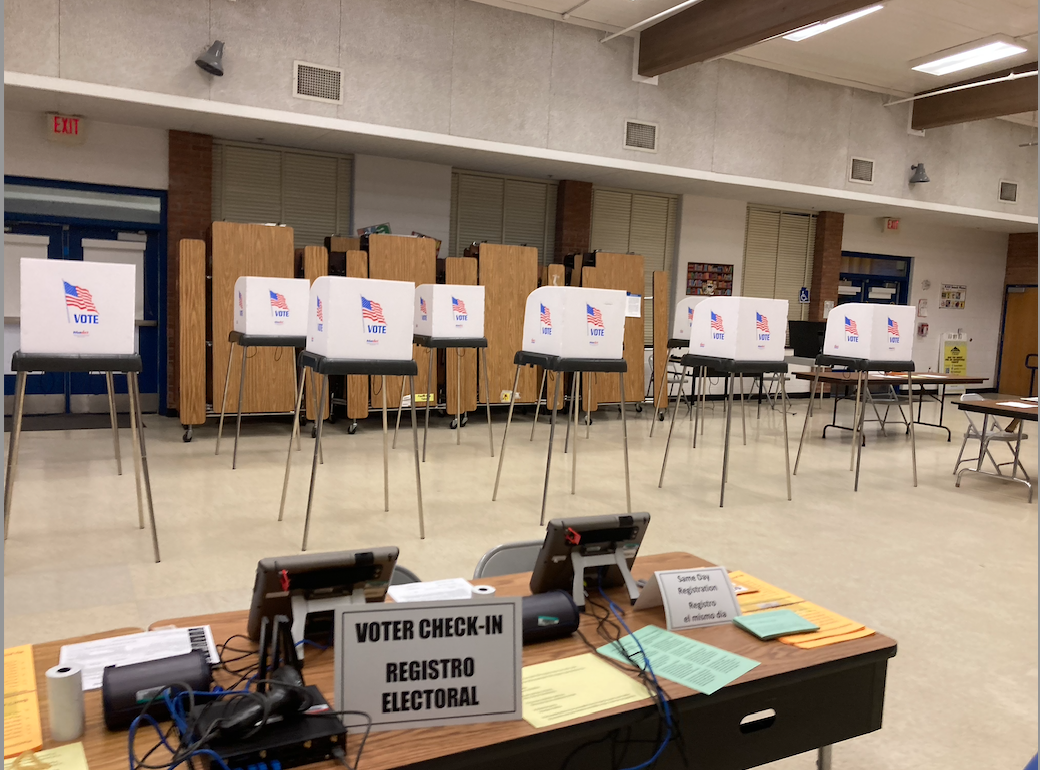Pro: Should Non-D.C. Residents Be Allowed To Vote in Local Elections?
The Council of the District of Columbia approved the Local Resident Voting Rights Amendment Act in October, allowing noncitizens who have resided in the area for over 30 days and who do not claim voting residence in any U.S. territory to participate in local elections. Many Washington residents oppose or are ambivalent about this decision, concerned that noncitizens are unfamiliar with policies that could impact citizens’ lives and are uninvolved with the broader community. However, noncitizen Washington residents are equally affected by its legislation and, thus, should be granted the right to vote.
Washington’s substantial noncitizen immigrant population deserves to be included in the electoral process. During a legislative session before the vote, council member Charles Allen said, “This bill is in line with our D.C. values and this council’s history of expanding the right to vote and welcoming new voices into our political process and government. Our immigrant neighbors of all statuses participate, contribute, and care about our community in our city.” According to the 2021 American Community Survey, 42,000 voting-age noncitizens live in the district, nearly four times the margin by which District of Columbia Mayor Muriel Bowser won her party’s nomination last year. Such statistics demonstrate that Washington’s noncitizen population constitutes a significant part of its community and potential voter base and, thus, deserves representation in local government. Voting rights for noncitizens would encourage the election of local leaders who advocate for issues impacting the community at large, such as immigrant rights, education, infrastructure and policing, all of which influence noncitizens’ quality of life.
The Local Residents Voting Act supports political activism, increased voter turnout and Washington’s immigrant population. Many politicians similarly argue that including noncitizens in the electorate is necessary to adequately represent the diverse populations in the city. Noncitizens who work jobs to support themselves and their families contribute to its economy and are well-integrated community members, and should thus be entitled to their basic right to vote. They are not disengaged strangers to the city, but rather fellow students, friends and neighbors that make numerous positive contributions to the city.
In conclusion, residing noncitizens should be granted the right to vote as active members of the community influenced by Washington politics. It is critical that the city fairly represents all of its constituents when making decisions that impact the population as a whole.
Con: Should Non-D.C. Residents Be Allowed To Vote in Local Elections?
In October, the D.C. Council passed the Local Resident Voting Rights Amendment Act, allowing anyone who has resided in the city longer than 30 days to vote in local elections. The House recently passed a bill that would negate this act, yet the Senate’s review period of the bill ended in March without significant action. Though the bill has become law, threats remain.
This act has undeniable benefits: the citizenship process is deeply flawed, exploiting post-colonial nations and supplying companies with cheap labor amid strikes. This act is a promising step for representation. However, as House Republicans have shown, progress will always be met with heavy resistance and, as a result, the act poses a threat to more instrumental future steps, such as statehood.
Statehood for Washington remains a far-off goal, especially with current partisan division, as giving two more seats to a Democrat-controlled district is a deal-breaker for Republicans. Until Washington can provide viable protection to counteract the rampant xenophobia that this act will fuel, the fight for more equitable representation will be a losing battle. Washington will be sensationalized in headlines as a negative archetype of liberalism, thus becoming a target for the fears of the racist right-wing, hindering hopes for legitimate legislative progress. It may be best to let the act die and avoid additional conservative pontification.
While we should not fear outsized Republican reactions, we must also be careful. Backlash sours public opinion against policies, regardless of their popularity. With contentious topics like immigration, too strong of a push can have the inverse effect of halting progress. Many Americans are scared of major shifts to the status quo, and when surrounded by latent political paranoia, it will take greater effort to sway them. This act is demonstrably progressive, and in a better world, we would not have representatives who discriminate against immigrants. Pushing for this act will only inflame conservative opposition and make it almost impossible for a more universal step, such as statehood, to pass later.
The act is not inherently flawed for its failure, but rather the system surrounding it. While this act is a futile cause, Washington voters can focus on ensuring that the next time a similar step toward better representation is proposed, we are prepared to pass it. This means shifting the social narrative by asserting that greater voter representation is not a threat to our process of naturalization but a key facet of democracy. A pragmatic approach does not mean that we abandon progressive legislation, but rather that we pick our fights wisely.
